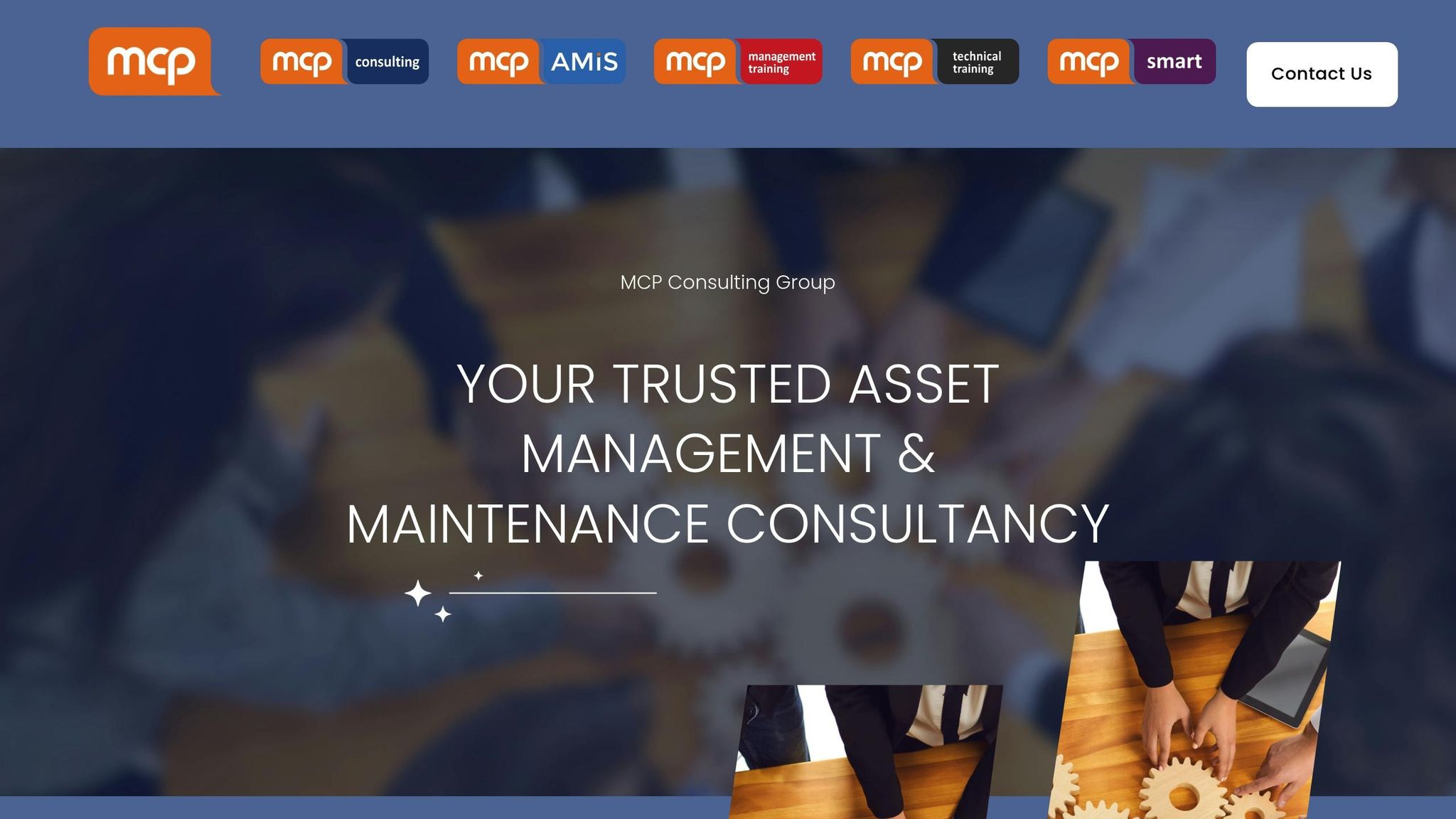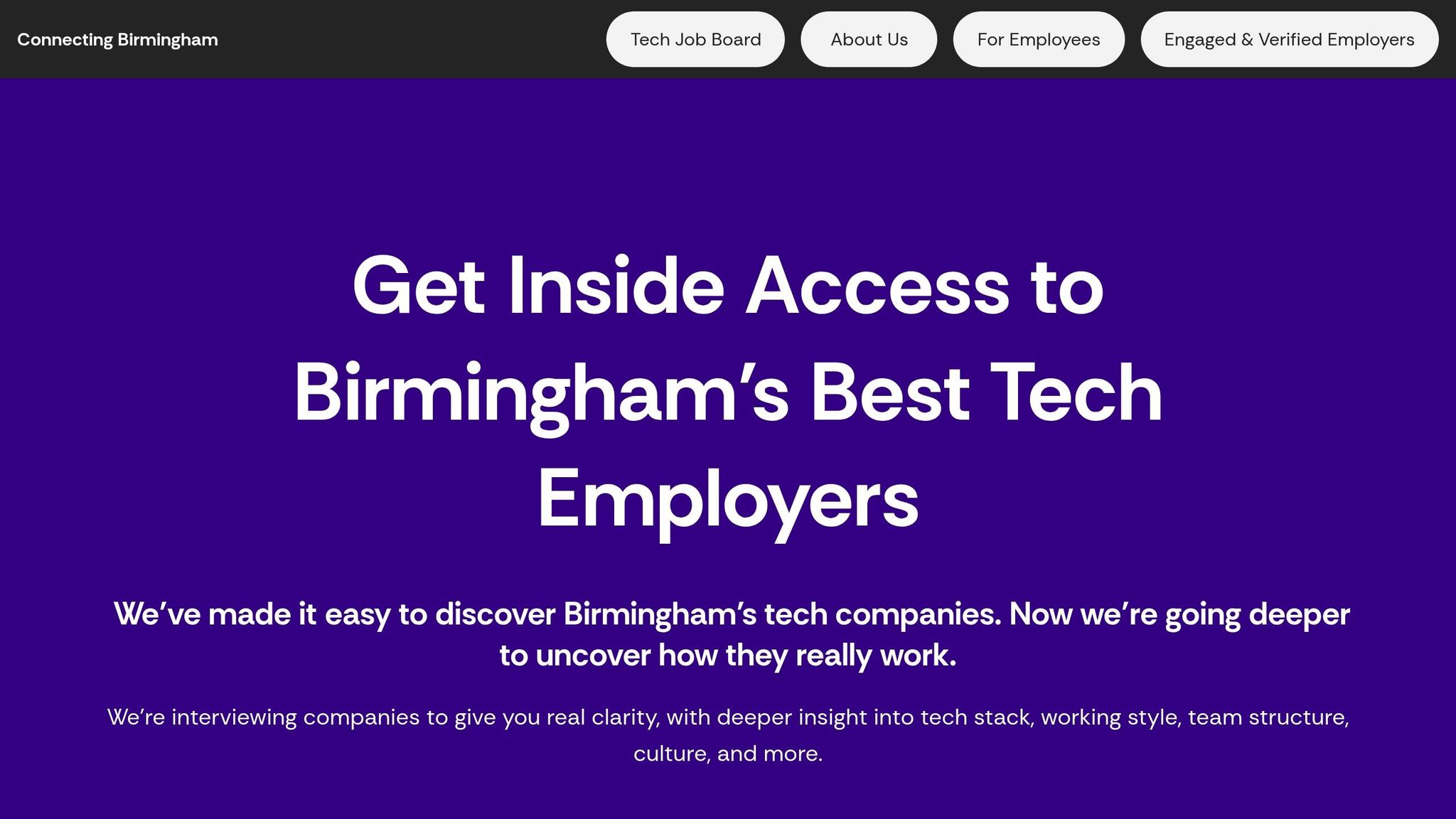The West Midlands SME Grant Programme is helping small businesses grow, create jobs, and improve their operations. Designed for businesses with fewer than 250 employees and a turnover of up to £50 million, the programme offers grants between £10,000 and £250,000. Companies can use the funding for equipment, technology development, market expansion, or training. Beyond financial support, businesses also gain access to mentorship, networking events, and workshops.
Key Highlights:
- Who can apply? SMEs in the West Midlands with up to 250 employees and £50m turnover.
- Funding range: £10,000 to £250,000.
- Key sectors: Technology, advanced manufacturing, and digital services.
- Additional benefits: Mentorship, networking, and introductions to partners.
Success Stories:
- Bludog Ltd (Coventry): Used £13,100 to upgrade machinery, increasing production efficiency and market opportunities.
- MCP Consulting Group (Blythe Valley): Addressed demand with new training tools and virtual software, boosting training sales to £1.2m.
- Digital Twin Accelerator: Supported 36 SMEs, securing £23m in co-investment and enabling partnerships like Novoville's housing retrofit platform.
This programme is not just about funding - it connects businesses with resources and expertise to ensure long-term growth across the West Midlands.
Webinar: Decarbonisation Success Stories
Bludog Ltd: Growing Production Capacity
Bludog Ltd, a Coventry-based business specialising in printed, embroidered, and rebranded clothing, is a shining example of the type of enterprise the West Midlands SME Grant Programme is designed to assist. In September 2023, the company applied for a grant to modernise its outdated machinery and increase production capacity.
This funding proved to be a game-changer, helping Bludog Ltd streamline its operations and take steps towards future growth. Here's how the grant made a difference.
Grant Application and How Funds Were Used
Bludog Ltd secured £13,100 through the West Midlands SME Grant Programme. The grant application focused on tackling the inefficiencies caused by outdated equipment and boosting the company’s ability to meet growing demand. With the funding, the company invested in essential upgrades, including a conveyor dryer and a new printer. These pieces of equipment were selected to address production bottlenecks, ensuring smoother and faster operations.
By targeting this specific area for improvement, Bludog Ltd was able to make immediate strides in improving its processes, proving the value of the grant.
Results and Measured Outcomes
The impact of the new equipment was felt right away. Production efficiency improved significantly, allowing Bludog Ltd to handle customer orders more effectively. This has not only increased customer satisfaction but also strengthened relationships with clients, giving the company a stronger foothold in the competitive custom clothing market.
The boost in production capacity has also opened doors to new markets, demonstrating the lasting benefits of the investment. While no specific figures on job creation were provided, the improved operational capacity aligns with the company’s growth ambitions, suggesting that new employment opportunities could emerge as a natural next step.
Bludog Ltd’s leadership praised the grant for addressing immediate operational needs while laying the groundwork for future expansion. The company is now better equipped to meet demand and explore new opportunities in the custom clothing sector.
MCP Consulting Group: Growing Through New Technology

MCP Consulting Group tackled post-pandemic challenges head-on with help from the West Midlands SME Grant. Since 2020, the training and consultancy firm has seen a staggering 200% increase in demand for its services. Its training facility in Blythe Valley, which opened recently, has already reached an impressive 90% utilisation rate. While this growth was promising, it also created bottlenecks that threatened to delay services.
Investment in Training and Technology
To resolve equipment shortages and meet rising demand, MCP Consulting Group used the grant to acquire essential training tools and cutting-edge virtual training software. This strategic move not only improved the quality of in-person sessions but also allowed the company to extend its services beyond the physical limits of its training centre. By embracing virtual training, MCP could cater to a growing client base without being restricted by space.
Business Growth and Revenue Increase
The impact of these upgrades was immediate. Training sales soared to £1.2 million, driven by the improved delivery of both in-person and virtual services. This growth highlighted the company’s ability to operate more efficiently while reaching a broader audience.
The results speak for themselves. CEO Peter Gagg shared:
"We have found BGWM's support as invaluable in supporting our training and consultancy business to grow both in the UK and overseas. Christine keeps us updated of possible support opportunities which may be relevant to us; these are not always for financial support but also offering advice and guidance I would recommend any small to medium sized business, wishing to grow whilst managing day to day business, to seek assistance from BGWM."
MCP’s experience shows that the grant programme is about more than just funding. It provides ongoing support and guidance, helping businesses like MCP navigate growth hurdles and uncover new opportunities.
Digital Twin Accelerator Cohort Results
The DIATOMIC Digital Accelerator has reshaped how small and medium-sized enterprises (SMEs) in the West Midlands embrace digital twin technology, turning pilot projects into tangible business opportunities. Between 2023 and 2025, the programme supported 36 SMEs in developing digital twin services, unlocking £23 million in co-investment along the way. This initiative highlights how focused support can drive progress in emerging tech sectors, with its collaborative approach paving the way for meaningful partnerships.
Partnership Success Stories
The accelerator's first cohort achieved impressive collaborative milestones. Nine companies established over 30 new partnerships with external organisations and secured more than £400,000 in additional funding by the programme's conclusion. These partnerships directly contributed to revenue growth and business development.
One standout example is Novoville, a civic engagement platform. Through DIATOMIC, they developed "Shared Works", a digital twin platform designed to streamline housing retrofit coordination. During a three-month pilot with Birmingham City Council, Novoville integrated live council data with contractor workflows. The trial was so successful that Birmingham City Council immediately adopted the platform, awarding Novoville a six-figure contract to help upgrade hundreds of homes. Additionally, the accelerator connected Novoville with Dodd Group, a national contractor, which tested Shared Works on hundreds of housing association properties, proving its scalability.
Another success story comes from Birmingham-based NolijWork, which created a "service diagnostic" digital twin to evaluate social housing maintenance operations. Using DIATOMIC's resources, they trialled their solution on 60,000 council homes in Birmingham, analysing repair data to uncover inefficiencies. The pilot identified bottlenecks that, when resolved, could significantly reduce turnaround times for vacant units. This achievement has sparked nationwide interest, expanding NolijWork’s potential client base.
Furbnow, originally a home retrofit concierge service, used the accelerator to shift its focus to a data-driven platform for retrofit planning. Their digital twin solution now caters to both individual homeowners and large housing portfolios. This pivot led to a trial with Birmingham City Council's Route to Net Zero team and helped Furbnow secure £950,000 in pre-seed investment to grow their platform and establish partnerships with councils and housing associations.
Accelerator Programme Benefits
The DIATOMIC programme offers SMEs more than just partnerships - it provides a unique opportunity to test and refine digital twin solutions in real urban environments, reducing risk and enhancing their appeal to investors. Participants also gain access to mentors, industry experts, and a network of city decision-makers and data owners, creating a supportive ecosystem for growth.
One company that benefited from this approach is Osmium, a manufacturer of IoT-enabled circuit boards. Initially focused on wind turbine monitoring, Osmium pivoted through DIATOMIC to develop smart building management solutions. They created sensor systems to monitor energy usage and humidity in council housing, helping to identify properties at risk of mould. This shift into a new market was made possible by the accelerator's access to city-level data and infrastructure.
The programme’s impact goes beyond individual businesses. By fostering collaboration, sharing insights, and providing access to city data, DIATOMIC has positioned the West Midlands as a hub for digital twin innovation. The £23 million in follow-on co-investment generated by the first cohorts underscores the programme’s success in building sustainable and scalable businesses.
sbb-itb-1ad140f
Regional Impact and Programme Results
The West Midlands SME Grant Programme has played a pivotal role in driving economic growth across the region. By creating jobs, boosting revenue, and helping businesses build resilience, the programme has had a clear and measurable impact. Beyond individual success stories, its influence is reflected in the broader economic development of the area.
Key Numbers and Success Data
The programme's success isn't just about individual achievements - it has significantly contributed to regional progress. One standout accomplishment is the creation of a wide range of new jobs across industries like manufacturing and technology services. This support has helped businesses recruit skilled workers, expand their teams, and invest in training programmes to nurture local talent.
Many businesses that received grants reported notable revenue increases within two years, showcasing the programme's ability to drive growth. Additionally, these businesses have shown stronger resilience compared to typical SME survival rates, reflecting both the calibre of the participants and the continued guidance provided during the grant period.
Innovation has also flourished. Supported businesses have developed new products and services, often collaborating with research institutions to gain a competitive edge. These achievements highlight how the programme fosters creativity and market leadership, with long-term results sustained through ongoing support.
Continued Support and Relationships
Understanding that growth doesn’t end with funding, the West Midlands SME Grant Programme offers ongoing guidance to its participants. Grant advisors maintain close relationships with businesses, ensuring regular check-ins to monitor progress and tackle challenges as they arise.
Industry experts provide mentorship and conduct regular reviews, helping businesses uncover new opportunities for funding and expansion. Advisors also assist in identifying additional resources, whether through other grant schemes, private investors, or bank financing, to fuel further growth.
Peer networking sessions are another key element of the programme. These gatherings connect current and former grant recipients, creating opportunities for collaboration and knowledge exchange. Many businesses have formed partnerships and joint ventures through these interactions, while the growing alumni network offers practical advice and market insights to help tackle challenges and seize new opportunities.
Connecting Birmingham: Supporting Local Tech Growth

The West Midlands SME Grant Programme plays a key role in funding business growth, but Birmingham's tech sector also thrives on resources that bring people and companies together. Enter Connecting Birmingham - a platform that bridges the gap between tech SMEs searching for talent and job seekers eager to find their next role in the local market.
Helping Tech SMEs Grow
For tech companies benefiting from grant funding, one of the biggest hurdles is finding the right talent to support their growth. Connecting Birmingham tackles this challenge by offering a curated directory of verified companies and a job board tailored specifically to the city's tech ecosystem. This allows businesses to promote their culture, open roles, and growth opportunities directly to local professionals.
Networking is at the heart of Birmingham's tech sector. A striking 70% of tech jobs in the city are filled through networking rather than traditional recruitment methods. This makes platforms like Connecting Birmingham essential for grant-funded SMEs looking to scale their teams effectively. By creating opportunities for meaningful connections, the platform ensures businesses can find the skilled professionals they need to grow.
Companies using the platform can earn a "Engaged & Verified Employer" status, which adds transparency to their recruitment process. This verification reassures job seekers that they’re exploring legitimate opportunities with established businesses, while also helping employers build trust with potential candidates.
Supporting Job Seekers
For professionals eager to join Birmingham's expanding tech scene - especially those eyeing opportunities with grant-supported SMEs - Connecting Birmingham offers much more than a standard job board. The platform provides in-depth, verified company profiles, giving job seekers the information they need to make informed career choices.
"People come to Connecting Birmingham because we do the digging most job sites don't. We stay close to what's happening inside local tech teams and share what actually matters to candidates. Our goal? To be the place Brum's job seekers trust when they want straight answers about companies and roles."
Job seekers can sign up for weekly job alerts, explore company cultures, and gain valuable insights into team dynamics before applying. This is especially helpful when considering roles in SMEs experiencing rapid growth after receiving grant funding. Understanding a company's direction and workplace environment is crucial for professionals deciding whether to join a scaling business.
Conclusion: SME Success and Future Growth
The West Midlands SME Grant Programme has been a game-changer for businesses in the region. Companies like Bludog Ltd, which has boosted its production capacity, and MCP Consulting Group, which has made strides in technology, show how focused funding can spark growth for small and medium enterprises.
But the programme's influence goes far beyond individual businesses. It has helped position the West Midlands as a centre for innovation and technological progress, bolstering the local economy by creating jobs and drawing in more investment.
Of course, funding alone isn't enough for sustainable growth. Access to skilled workers and strong support networks is equally essential. These success stories underline how interconnected business growth truly is. While grant funding provides the financial push, long-term expansion depends on having the right talent, supportive networks, and continuous resources. Initiatives like Connecting Birmingham play a crucial role here, helping grant-supported tech companies find the expertise they need to make the most of their investments.
When financial backing is combined with access to specialised skills, it creates a thriving environment for SME growth. Businesses can focus on innovation while tapping into the resources they need to scale up effectively. This blend of financial and practical support is what makes the West Midlands stand out as a region committed to sustained economic progress.
The future of initiatives like the West Midlands SME Grant Programme lies in maintaining this balanced approach. The examples shared here illustrate how strategic investment, paired with local expertise, can drive lasting growth across the region's diverse business community.
FAQs
How can small businesses in the West Midlands apply for the SME Grant Programme, and what are the eligibility requirements?
Small businesses in the West Midlands have an opportunity to apply for the SME Grant Programme, but timing is critical. The next application deadlines are 7 February 2024 and 12 February 2024, and since funding is limited, applications are reviewed on a first-come, first-served basis. Submitting your application early gives you the best chance of securing support.
To qualify, businesses must meet these criteria:
- Be registered in the UK and operate as a for-profit organisation
- Employ fewer than 250 people
- Have an annual turnover below £50 million
- Show how they contribute to the local economy, such as by creating jobs or expanding commercial spaces
This programme is highly competitive, and applications will close either when the funds run out or after the deadline. If you’re eligible, don’t delay - apply as soon as possible!
What mentorship and networking opportunities are available through the West Midlands SME Grant Programme?
The West Midlands SME Grant Programme offers mentorship and networking opportunities to help local businesses succeed. These include customised events, business evaluations, and digital transformation projects aimed at building connections and sharing knowledge.
Businesses can also take advantage of support initiatives like the Investment Readiness Programme and Export Support Programme, both designed to boost growth and encourage collaboration across the region. For tech companies, Connecting Birmingham provides a useful platform, offering insights and connections that facilitate professional networking and mentorship.
How does the Digital Twin Accelerator help SMEs in the West Midlands adopt innovative technologies and attract co-investment?
The Digital Twin Accelerator offers small and medium-sized enterprises (SMEs) up to £100,000 in funding to create advanced digital twin solutions aimed at improving urban planning and city management. Alongside financial backing, the programme provides customised technical and business support, such as market analysis and strategic advice, to help companies adopt and integrate new technologies effectively.
The initiative also opens doors to co-investment opportunities. So far, participating SMEs have attracted over £125 million in additional funding, showcasing the programme's potential to drive innovation and support sustainable business growth.


